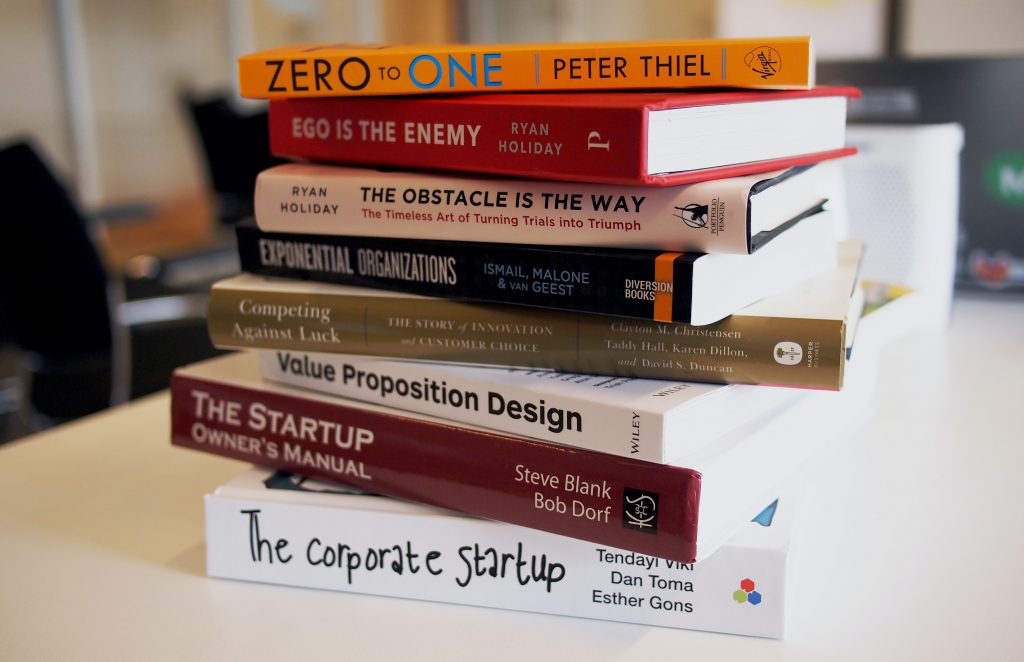Imagine your last stressful situation. Your face is getting red. You start to stammer and justify yourself. What if you had some superpowers that prevent these things from happening?

The book “Influence” by R. Cialdini deals with the psychology of influencing other people. He describes the conscious and unconscious actions to sway other people in our desired direction. My intention is not to provide a summary of the book. Different people have done an excellent job on this, such as this one.
Understanding is always the first step. I will point out where you might have come under the influence of these principles. And how you can defend against it the next time.
Getting active
We best learn from our own experiences. To get the most out of this post, try to develop a situation in your own life where you experienced something similar.

1. We give, and we take,
Communication is about giving and taking. We listen, and we expect to be listened to in return. Communication can also consist of following someone and being followed. This action relates to the principle of reciprocation. It relies on the fact that favor is to be met with favor. A frequent exploitation is to provide “false” favors. Sometimes your adversary will present this favor as a concession on his part. Then you feel obliged to meet it with a reciprocal concession.
A genuinely gifted exploiter can not be spotted. He will always find the sweet spot of having his advantage. Worse, did you ever wonder why some people never give something in some groups? And why do they get away with it? The explanation is that we adapt to unfavorable give-take balances. This misbalance is especially treacherous as there is no defense over a longer time frame. If you conclude that you are always on the losing side one day, this principle could have been at work.
Defend against hidden agendas
In my opinion, a robust value system is essential. Actively remind yourself what you want to achieve. Why do you do something? In what manner do you want to accomplish a task?
2. Little strokes fell great oaks
We all want our actions to chain to each other like a red thread. We want to be consistent with our past actions. Our actions are repeated commitments to ourselves. And if we’re going to have a strong story, we need consistency in our commitments.
A strong story and red thread is the path to a fulfilled life.
However, it makes us predictable and, in consequence, exploitable. Your aggressor will use an elaborated strategy to move you to a particular action. Somebody else can ask you to perform acts of ever-increasing size, which are more to his advantage than to yours. Long periods with repeated commitments are required.
Usually, you start this chain of your own choice. So eventually, everything seems to have been your choice. At work, many group meetings work with this principle. In addition, “commitments are most effective when they are active, public, and effortful.” That is why you have such a hard time getting out of the situation.
Reflection is the key
Luckily there are two good defenses. First, listen to your stomach. If it tells you there is something wrong early on, take a step back. Secondly, while listening deeply into your body, ask the following questions: “With all I know now, would I decide differently?”, “Would I make the same choice again?”. Your subconsciousness will answer with a feeling of uneasiness. You then can clearly explain to the other party why you will back out of the deal without getting angry.
3. Nobody wants to be alone
We laugh if other people laugh. We are brave if other people are brave. We are social animals, and as such, we have a social autopilot that usually guides us. This primitive part of our brain is the power source of group dynamics. People exploit this by fake triggers or false authenticity.
Learn to read the crowd
A natural resistance comes with the label of a loner. But try this: Become sensitive to situations where the autopilot works with inaccurate information—false laughter, rehearsed dialogues, and the key trigger in a business context: fake authenticity.
You will require a good knowledge of humans. Looking at a group of people, do you notice something strange in their behavior? Do words and action not fit together?
4. We all want to be liked…
… and we all want to like other people.
“He was such a nice person…” is the quote regarding your local neighborhood serial killer. Being liked is something we all desire. Many know that attractiveness, similarity, familiarity, and compliments make us more desirable.
In addition to these four, there is also a less known fifth factor: cooperation. Cooperation is an active association of ourselves to somebody. There is also guilt by association; the famous reputation is all about this. This effect is known as the halo effect. It works for things and attitudes, even the language. Suppose your opponent is saying “We” vs. “You” or “They.” in that case. In that case, they try to shift possession of the subject under discussion. The messenger is associated with the message.
The art of the deal
Maybe that is not what Donald Trump meant but focus on the deal. Separate the message from the messenger. This approach will protect you against the lighter cases.
The more notable cases are easier to spot.
If you like somebody quicker than expected, reflect on whether he stands to gain. The stronger the effects, the more likely you will discover them with this defense. Think insurance broker or car dealership.
5. Following is easy
Authority has a place in the world. No order without authority. The fraudulent authority also concerns the designation of experts and therefore is highly relevant in work environments. The trick is to tell apart the real from the fraudulent authority.
Learn to read humans
Two questions reveal the manipulator: “Is this authority truly an expert?”, “How truthful can we expect the expert to be here?” Car dealerships, advertisements, clothing styles, and titles are just the tip of the iceberg. Many applications are much more subtle. Especially in work environments, people quickly title themself as an expert.
6. Fear of missing out
The final principle is widely in action today—the principle of scarcity. “Last item in stock, no new delivered” – this slogan tries to coerce you into spot buying?
This human reaction to such an offer results from a limitation of future freedom of choice—the choice to buy.
There are many examples: restricted teenage love or media manipulation-exceptional messages seem more critical than abundant messages.
This principle relates to the contrast principle. Everything in the world is relative. The bad news needs to be even worse if everything else is terrible.
. “There is neither luck nor bad luck in the world, there is only the comparison from one state to the other”
Monte Christo
Be self-aware
For buying stuff, the defense is easy:
- 1. Listen for the internal arousal that accompanies the perception of scarcity. “The joy is not in experiencing a scarce commodity but in possessing it.”
- 2. Ask yourself why do you want it. Owning or using?
For information, we need to treat the messenger as an authority. As such, the defense against authority comes into play.
How to apply the principles without being unfair
The best defense is the offense. How can you use the principles to frame ideas? In a series of articles, I will not only show how the principle influences you but how you can influence others in your communication.






